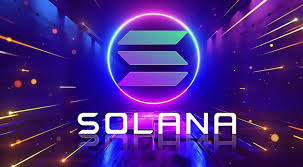
✍️ Summary of Key Points
⚪ The xStocks platform on Solana has surpassed a trading volume of $2 billion, offering tokenized stocks for major companies like Tesla and Apple, backed by actual shares, with the advantage of 24/7 trading and fractional ownership.
⚪ The regulatory challenge remains, with major markets like the United States and the European Union barred from entry, creating a fragmented market where the product thrives in more lenient regions.
⚪ Solana accounts for about 95% of the trading volume of tokenized stocks in the market, outpacing competitors like Ethereum.
⚪ The future of tokenized stocks is closely linked to the development of regulatory frameworks, where Solana offers speed and cost advantages compared to Ethereum’s strong institutional infrastructure.
---
🚀 The rise of tokenized stocks on Solana
⚪ Solana is known for its fast transactions and low fees, typically dominated by meme tokens and short-term speculative tokens.
⚪ However, the launch of the xStocks platform tests changing this perception by offering tokenized stocks backed by real shares, which are divisible and available for trading around the clock, something that traditional stock markets do not provide.
⚪ In just a few months, xStocks recorded about $2.24 billion in trading volume between centralized and decentralized platforms, with centralized platforms controlling the bulk.
⚪ This activity integrates exposure to regulated stocks within the Solana ecosystem, but sustaining momentum requires an expansion of the user base, liquidity stability, and regulatory compliance across multiple regions.
---
🛑 Absence of the United States and the European Union
⚪ Although most stocks traded via xStocks track American companies, investors in North America and Europe are unable to access the product due to strict regulatory constraints.
⚪ Activity is concentrated in more lenient or unclear regulatory areas, such as Asia and Latin America.
⚪ Previous attempts, such as Binance's attempt to launch tokenized stocks and its halt after regulatory pressures in Germany, confirm that traditional financial markets view these products as securities subject to the same laws.
⚪ Platforms like Coinbase and Robinhood have chosen to launch similar products outside the U.S. market, with expansion plans in Europe.
---
⚔️ Solana vs. Ethereum
⚪ Solana currently dominates about 95% of the trading volume of tokenized stocks across all blockchains, with a clear advantage in execution speed and low transaction costs.
⚪ Ethereum offers more regulated and institutional-friendly solutions, with strong legal infrastructure and a wider developer community.
⚪ Solutions on Ethereum focus on regulatory compliance (such as Swarm Markets), with lower trading volumes so far.
⚪ The future may witness a dual-path model, where Solana continues to lead high-frequency trading of tokenized stocks, while Ethereum maintains its position for institutions and products subject to strict regulation.
---
🔮 Future Predictions
⚪ The opening of regulatory frameworks in the United States and the European Union could quickly change the landscape, shifting liquidity towards more regulated institutional frameworks, potentially limiting Solana's advance.
⚪ The integrative competition is likely to continue, utilizing cross-chain models that allow flexibility in asset movement as demand dictates.
⚪ Solana's success depends on its continued integration with exchanges and the development of regulatory compliance tools within its ecosystem.
---
📝 Summary
⚪ The rise of tokenized Solana stocks is a strong indicator of the market's evolution towards integrating traditional assets with blockchain, but it still faces major regulatory hurdles that determine its sustainability and scope.
⚪ While awaiting more clarity on regulatory policies, the scene remains open for multiple competing and collaborating technologies and solutions at the same time.
What is your opinion on the rise of tokenized stocks on Solana? Do you see it as a real investment opportunity worth following, or just a temporary phenomenon that won't last?